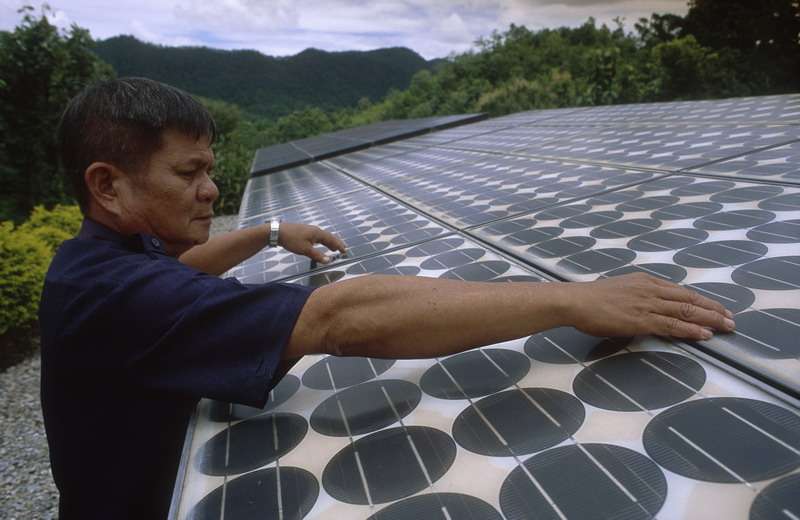Rich countries sweep billions in public finance for coal under the rug as climate deadlines loom

Over the last eight years, developed country governments have channelled more than US$73 billion of public money into coal projects, says research released today.
The finance, averaging US$9 billion a year, is responsible for as much pollution as some developed countries as detailed in "Under the Rug: How Governments and International Institutions Are Hiding Billions in Support to the Coal Industry." The new report by WWF, Natural Resources Defense Council and Oil Change International comes as global climate change impacts driven by carbon-intensive energy use accelerate.
As the 34 countries of the Organisation for Economic Co-operation and Development (OECD) gather for their annual Ministerial meeting and G7 leaders prepare to meet in Germany next week, rich nations must seize these key political opportunities to ensure their climate credibility by taking ambitious and urgent action so the planet can avoid the worst impacts of climate change.
"Many developed country governments that push for ambitious climate action are simultaneously funding coal abroad. They cannot do both and be credible," said Samantha Smith, leader of WWF's Global Climate and Energy Initiative. "It is time for rich nations to put their money behind the solutions, like renewable energy, rather than using taxpayers' money to fuel climate change."
The report reveals that international public finance for coal between 2007 and 2014 is responsible for as much pollution as Italy, the country with the 20th highest emission globally. During this period, total greenhouse gas emissions amounted to almost half a billion tons of carbon dioxide equivalent per year.
Over the eight years tracked by the report, Japan provided the largest amount of coal financing of any country, at over US$20 billion. From OECD members, whose official Export Credit Agencies provide nearly half of the total international finance for coal, Korea and Germany were the next largest sources of funding for coal.
Non-OECD nations China and Russia account for 23 per cent of public finance for coal with multilateral development banks making up 22 per cent.
Contradicting the claim that export finance for coal is necessary to fight energy poverty in poor countries, the report shows that zero export finance for coal has gone to low income countries, where the need for energy access is greatest. Instead, 25 per cent of this finance went to high income countries with no energy poverty concerns.
With UN climate negotiations for a new global agreement taking place later this year, Nordic countries, the UK, USA and France as well as financial institutions such as the World Bank have recently pledged to stop coal power plant finance. This is reflected in the report by a reduction in public finance for coal in 2014.
"All developed countries must follow the examples set in 2014. If they want to be credible in Paris when asking developing countries to commit to an ambitious climate agreement, rich countries must ensure consistency between climate commitments and export finance policies. It's time to fund the solutions of the future, not the dirty fuels of the past," said Smith.
Provided by WWF




















